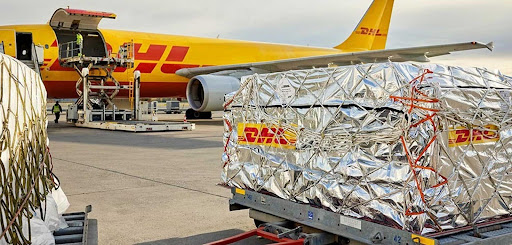Importing goods into South Africa is a vital strategy for businesses aiming to expand their market reach and gain access to innovative international products. However, the journey through South Africa's import landscape is intricate, demanding a deep understanding of customs duties, regulatory compliance, and logistics management.
This guide offers a comprehensive exploration of calculating import duties and tackling the challenges prevalent in South Africa's import logistics.
Mastering Import Duties
Import duty represents a tax imposed on goods entering a country. In South Africa, the South African Revenue Service (SARS) oversees the collection of these duties. The duty amount varies based on several factors, including the type of goods, their origin, and their customs value.
Calculating Import Duties: A Simplified Approach
Determine the Customs Value: This includes the transaction value of the goods encompassing the cost, insurance, and freight charges.
Identify the Harmonised System (HS) Code: Each product is assigned a unique HS code that dictates the applicable tariff rate.
Apply the Ad Valorem Duty Rate: This percentage of the customs value is charged as duty.
Calculate the Duty Amount: Multiply the customs value by the ad valorem duty rate to find the duty amount.
Example: For a product valued at R10,000 with a 10% ad valorem duty rate, the import duty would amount to R1,000.
Tools for Simplified Duty Calculations
Customs Calculators: SARS provides online tools for basic customs and VAT calculations. For more complex needs, consulting a customs broker is advisable, particularly for high-value or intricate imports.
Import Duty Software: Specialized platforms automate calculations, monitor real-time rates, and integrate with logistics systems, ensuring accuracy and efficiency.

Overcoming Common Import Challenges
Despite meticulous planning, importers frequently encounter logistical hurdles. Addressing these challenges can streamline operations:
Regulatory Compliance: South Africa enforces strict customs regulations with mandatory health, safety, and quality checks. Collaborating with a certified customs broker ensures compliance and assists with obtaining necessary documentation.
Currency Fluctuations: The volatile South African Rand can significantly impact import costs. Mitigate risks through forward contracts or currency hedging strategies.
Customs Delays and Inspections: High-value or high-risk goods often undergo customs inspection. Prevent delays by ensuring accurate documentation and using precise HS codes.
Logistical Challenges: Reliable infrastructure can be problematic, particularly in remote areas. Consider streamlined shipping routes and modes of transport.
Non-Tariff Barriers and High Shipping Costs: Address these by negotiating bulk rates or utilizing trade agreements like those under the Southern African Development Community (SADC) for preferential tariffs.
Strategies for Navigating Import Challenges
Implement the following strategies to mitigate import challenges:
Engage a Customs Broker: Leverage their expertise to navigate customs procedures efficiently.
Stay Informed on Regulations: Regularly update your knowledge of regulations to avoid penalties.
Build Strong Supplier Relationships: Strengthening supplier ties reduces costs and streamlines processes.
Optimize Supply Chain Management: Consider various factors to enhance efficiency.
Utilize Digital Tools: Employ customs clearance software to simplify processes.
Seek Expert Advice: Gain insights from import-export experts.
Trade Agreements for Cost Reduction
South Africa participates in trade agreements with various nations, granting preferential rates or duty exemptions for certain products. Familiarizing yourself with these agreements, especially for frequently imported items, can significantly reduce duty expenses. Agreements within the SADC or between South Africa and the European Union allow for lower or zero tariffs on many goods, depending on their country of origin.
Leveraging Technology for Streamlined Import Logistics
Technology is revolutionizing import logistics, offering tools to track shipments, manage duties, and enhance supplier communication:
Automated Documentation: Digital platforms streamline paperwork, minimizing errors and expediting customs clearance.
Real-Time Tracking: Many providers offer tracking services for precise shipment locations and estimated arrival times.
Data Analytics for Cost Management: Analyze import expenses, optimize duty payments, and negotiate better terms.

Partner with DHL for a Seamless Import Experience
Navigating the complexities of import logistics becomes much simpler with a reliable logistics partner. DHL offers extensive experience, global reach, and customised solutions to manage duties, documentation, and regulatory compliance. By partnering with DHL, businesses gain access to tools, tracking, and dedicated support to ensure smooth import processes. Open a business account today to streamline your import needs, reduce delays, and optimise costs as you expand your reach in South Africa and beyond.
In conclusion
Successfully navigating import logistics in South Africa requires a combination of compliance, careful duty calculations, and overcoming logistical challenges. By understanding the specifics of import duties, using the right digital tools, and leveraging trade agreements, businesses can streamline their import operations and achieve cost savings. With careful planning and informed decision-making, importing goods into South Africa can become a seamless and cost-effective aspect of a company’s operations.

















